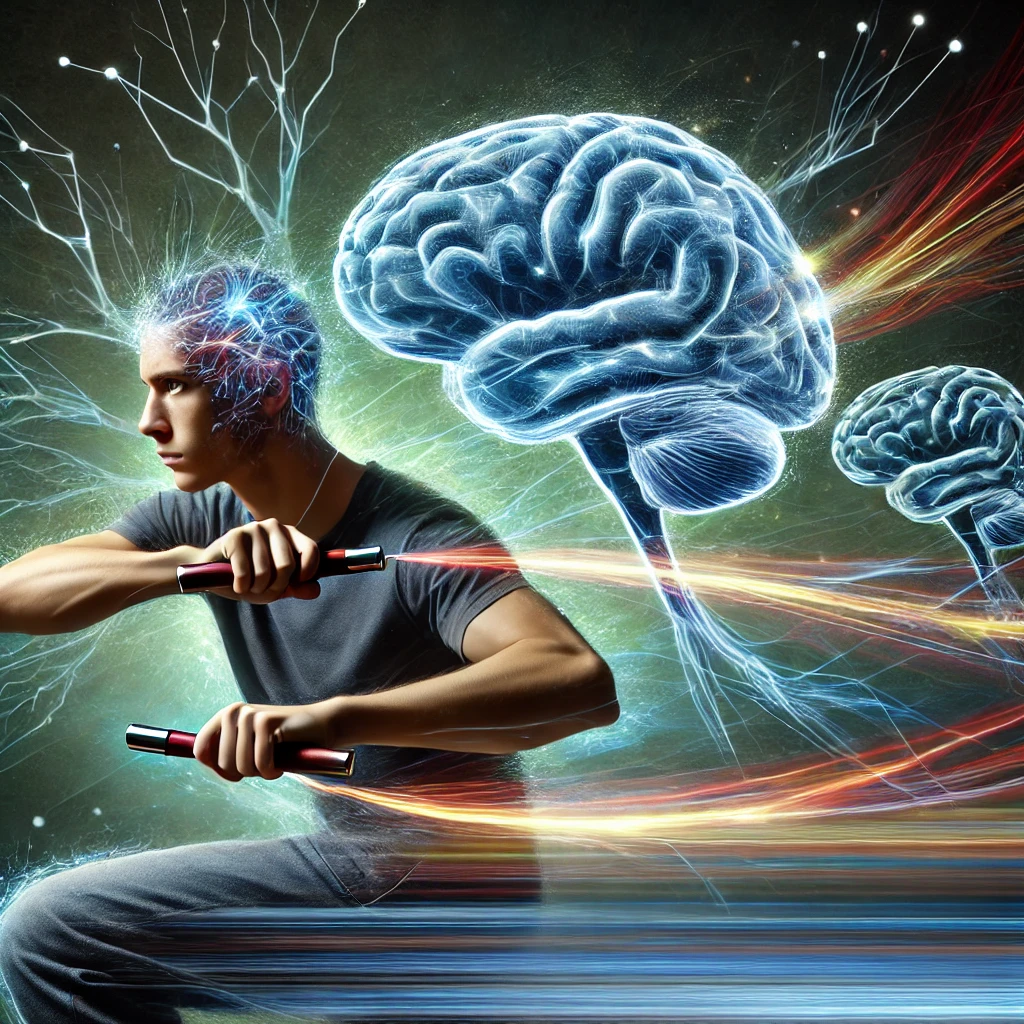Your cart is currently empty!

The Cognitive Benefits of Nunchucks: Enhancing Brain Function and Coordination
The Cognitive Benefits of Nunchucks: Enhancing Brain Function and Coordination
Nunchucks, also known as nunchaku, are often associated with martial arts and action movies, but beyond their use in combat and training, they offer significant cognitive benefits. Training with nunchucks not only improves coordination and reflexes but also enhances brain function, mental discipline, and overall cognitive health. In this comprehensive blog post, we will explore the cognitive advantages of nunchuck training and how incorporating this unique practice into your routine can sharpen your mind and body.
The Science Behind Nunchucks and Cognitive Function
Training with nunchucks engages multiple cognitive processes simultaneously, requiring precise hand-eye coordination, rapid decision-making, and spatial awareness. These factors contribute to the development of neuroplasticity, the brain’s ability to adapt and form new neural connections. Scientific research has demonstrated that activities that involve complex motor skills stimulate brain activity and improve cognitive function over time.
Practicing with nunchucks demands intense focus, as the user must anticipate movements, adjust timing, and maintain control over fast-moving objects. This process strengthens neural pathways related to reaction time, memory, and problem-solving skills. In essence, nunchuck training is not just a physical exercise but a mental workout as well.
Enhancing Coordination and Motor Skills
One of the most noticeable benefits of training with nunchucks is the improvement in coordination and motor skills. Mastering the art of fluid, controlled movements requires precise timing and synchronization between the hands, eyes, and brain. This enhances fine motor skills, reaction time, and muscle memory, all of which are essential for daily activities and sports.
Bilateral coordination—the ability to use both sides of the body effectively—is another key benefit of nunchuck training. By practicing different striking and blocking techniques, individuals develop greater control over their non-dominant hand, leading to improved balance and agility. Enhanced coordination also contributes to better performance in activities that require dexterity, such as playing musical instruments or engaging in various athletic pursuits.
Strengthening Focus and Mental Discipline
Nunchuck training requires a high degree of concentration and mental discipline. Unlike repetitive gym workouts, using nunchucks involves constant engagement of the mind to ensure accuracy, control, and rhythm. This focused practice fosters mindfulness, where practitioners are fully present in the moment, reducing distractions and improving overall concentration.
In martial arts, nunchuck training is often used as a tool to instill discipline and patience. The learning process can be challenging, but overcoming difficulties helps develop perseverance and resilience. These qualities carry over into other aspects of life, making individuals more determined and capable of handling complex tasks with confidence.
Boosting Memory and Cognitive Flexibility
Mastering nunchuck techniques involves remembering sequences of movements, transitions, and combinations. This active learning process strengthens working memory, which is crucial for problem-solving and retaining information. As practitioners progress, they must adapt to new techniques, reinforcing cognitive flexibility—the ability to switch between different thoughts or actions efficiently.
Cognitive flexibility is essential for multitasking and adapting to new situations. By training with nunchucks, individuals improve their ability to think quickly, adjust strategies, and maintain composure under pressure. This can be particularly beneficial in academic and professional settings where adaptability and quick decision-making are valuable skills.
Reducing Stress and Enhancing Mood
Engaging in rhythmic and repetitive activities such as nunchuck training has been shown to reduce stress and improve overall well-being. The physical exertion involved in swinging nunchucks releases endorphins, which are natural mood-boosting chemicals that help alleviate anxiety and depression.
Furthermore, the meditative nature of nunchuck practice promotes relaxation and a sense of flow—a psychological state where one becomes fully immersed in an activity. This state of flow has been linked to increased happiness, enhanced creativity, and reduced mental fatigue. Practicing nunchucks provides a constructive outlet for stress while fostering a sense of accomplishment and self-improvement.
Nunchucks and Aging: Maintaining Cognitive Health
As people age, cognitive decline becomes a concern. Activities that challenge both the brain and body simultaneously can help maintain cognitive sharpness and reduce the risk of neurodegenerative diseases such as Alzheimer’s and dementia. Nunchuck training serves as an excellent brain workout by continuously stimulating mental and physical coordination.
Research has indicated that learning new motor skills keeps neural pathways active and prevents cognitive decline. The complexity of nunchuck movements requires sustained engagement, ensuring that the brain remains active and adaptable. For older adults, practicing nunchucks can be a fun and effective way to stay mentally and physically agile.
How to Get Started with Nunchuck Training
For those interested in experiencing the cognitive benefits of nunchuck training, here are some steps to get started safely:
- Choose the Right Equipment – Beginners should start with foam or padded nunchucks to reduce the risk of injury. As proficiency improves, transitioning to wooden or metal nunchucks may be an option.
- Master Basic Movements – Start with simple swings, figure-eight motions, and controlled strikes. Focus on developing proper form and hand positioning.
- Practice Regularly – Short, consistent training sessions (10-15 minutes per day) are more effective than sporadic, lengthy sessions.
- Use Protective Gear – Wearing gloves and protective eyewear can prevent accidental injuries during practice.
- Stay Patient and Have Fun – Learning nunchucks can be challenging, but persistence pays off. Enjoy the process and celebrate progress along the way.
Conclusion
Nunchucks offer more than just a flashy display of martial arts skills—they provide a powerful cognitive workout that enhances brain function, coordination, and mental discipline. Whether you are looking to improve focus, memory, stress management, or overall cognitive health, nunchuck training can be an engaging and rewarding practice.
By stimulating neuroplasticity, strengthening hand-eye coordination, and promoting mental resilience, nunchuck training supports lifelong learning and cognitive agility. Incorporating this unique activity into your routine can lead to lasting mental and physical benefits.
So why not give it a try? Pick up a pair of nunchucks, start practicing, and unlock the incredible cognitive benefits of this dynamic martial arts tool.

Leave a Reply